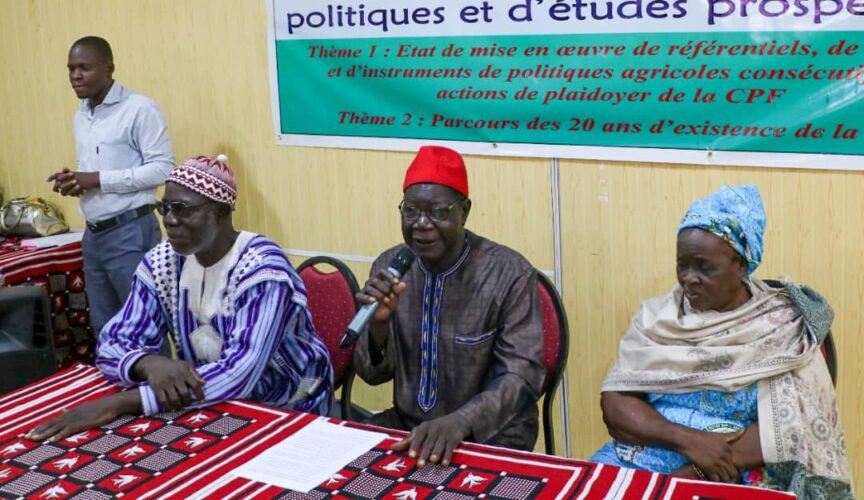The Confédération Paysanne du Faso (CPF), a member of the Network of Farmers’ and Agricultural Producers’ Organizations of West Africa (ROPPA), convened an important session of the Cellule d’Analyse des Politiques et d’Etudes Prospectives (CAPEP) on August 24 and 25, 2023, in Koudougou. This meeting signifies a crucial step in CPF’s long-standing fight for inclusive and sustainable agriculture in Burkina Faso.
For
over 20 years, CPF has been shaping the country’s agricultural policies. It has been instrumental in formulating key policies and tools such as the National Strategy for Agroecology (SND-AE), the Central Supply Unit for Agricultural Inputs and Equipment (CAIMA), the Agricultural Bank of Burkina Faso (BADF), and the Agricultural Development Fund (FDA). These tools aim to facilitate access to quality inputs, finance agricultural projects, and enhance resilience in the face of climate change.
Despite these advancements, substantial challenges remain. Existing agricultural policies and frameworks do not always meet the needs of small-scale family farms and producers. It is this observation that prompted CPF to organize the CAPEP session to think through concrete solutions.
The first area of focus during the session was the swift implementation of the SND-AE. Climate change waits for no one, and immediate measures are necessary to help family farms adapt to this new reality. The second point of discussion aimed to ensure that institutional purchases genuinely benefit the stakeholders in the agricultural sector, especially the most vulnerable ones.
Strengthening CAIMA was also on the agenda. Participants underscored the need to provide quality inputs securely and consistently to all agricultural producers. Last but not least, CPF demanded increased public funding in the agricultural sector, aiming to facilitate producers’ access to BADF and other financial instruments specifically designed for them.
The CAPEP session brought together not only presidents
of member federations of the CPF but also representatives from various groups, including women, youth, and elders. Specific peasant organizations like the Naam groupings and the Association for the Promotion of Livestock in the Sahel and Savanna (APESS) were also involved in the deliberations.
The fact that CPF is a member of ROPPA speaks to its commitment at not only a national level but also within a regional dynamic. The challenges facing Burkina Faso’s agriculture are not isolated and resonate with problems encountered elsewhere in West Africa.
In conclusion, this CAPEP session organized by CPF marks a strategic turning point in efforts to address agricultural challenges in Burkina Faso. The discussions and resolutions from this session provide a clear roadmap for the future, emphasizing the importance of innovation, inclusive finance, and adaptation to climate change. It’s a proactive approach that merits support to ensure a more sustainable and equitable agricultural future in Burkina Faso.
Read more stories about ROPPA’s work: https://roppa-afrique.org/news/

